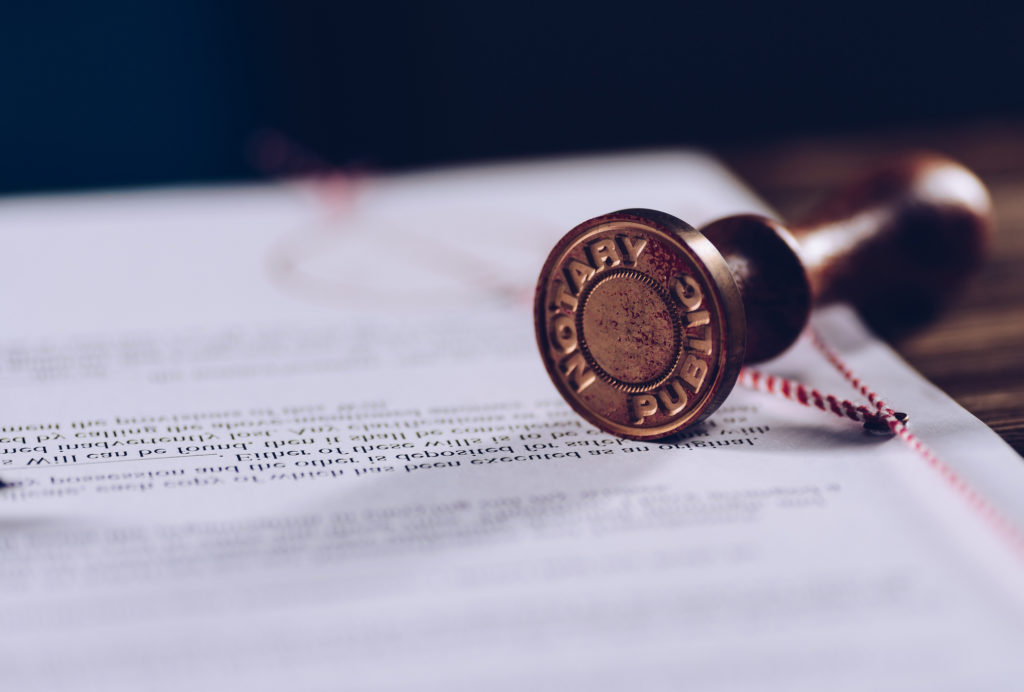Demystifying Notarial Work: Simplifying the Function and Relevance of Notaries
In the intricate internet of lawful documentation and verification, notaries stand as pillars of assurance and credibility. Their duty, frequently shrouded in enigma for several, lugs significant weight in making sure the validity and honesty of essential documents. As guardians of validity and reality, notaries play a crucial component in our culture, yet their work is not constantly fully understood. By unwinding the intricacies bordering notarial methods and dropping light on the value of their acts, a clearer understanding arises of the vital function notaries play in promoting the fabric of lawful and legal contracts.
The Background of Notarial Work
Exactly how did notarial job progress over time to end up being an important part of lawful and business purchases? The background of notarial work days back to old worlds, where scribes played a crucial role in videotaping crucial information and verifying documents. As societies advanced, the demand for a much more formalized system to make certain the credibility of agreements arose. This resulted in the growth of notaries, people appointed by the state to serve as neutral witnesses in legal issues.
During the Center Ages, notaries acquired importance in Europe, with their functions broadening to consist of composing lawful papers, certifying signatures, and protecting documents. The rise of international profession even more emphasized the importance of notarial operate in verifying agreements and agreements across boundaries.
In the modern era, notaries continue to play a crucial duty in legal and service deals by validating identifications, validating the authenticity of files, and stopping scams. Their duty in certifying the validity of agreements includes a layer of security and depend the ever-evolving landscape of commerce and regulation.

Responsibilities and Obligations of Notaries
Notaries play an essential function in verifying the credibility of records and the identity of notaries. One of their main responsibilities is to witness the signing of important papers, such as deeds, wills, and contracts, to make sure that all celebrations are entering into agreements purposefully and voluntarily.
Additionally, notaries are charged with carrying out affirmations and oaths, which are important in lawful proceedings and the execution of sworn statements. They license duplicates of initial files, offering guarantee to establishments that the copies are real replicas of the originals. Notaries should maintain accurate documents of all deals they look after to make sure openness and liability. On the whole, the responsibilities and duties of notaries are essential in protecting the integrity and legality of numerous papers and purchases.
Notarial Certificates and Signatures
Exhibiting precise interest to detail, notarial certificates and trademarks serve as vital elements in validating the credibility of lawful documents. Notarial certifications commonly consist of critical details such as the date of registration, the names of the signatories, a description of the record, and the notary's main seal. These certificates provide a clear record of the notarial act, making certain that the record can be quickly Notary identified and traced back to the notary that supervised the process.
Signatures play a pivotal duty in notarial work, as they indicate the contract and consent of the events involved. Notaries meticulously witness the signing of records to confirm the identification of the signatories and verify that they are signing of their very own free will. By attaching their official seal and trademark to the paper, notaries certify that the needed procedures have actually been followed and that the record is enforceable and legitimate.
In essence, notarial certifications and signatures are the hallmark of credibility in lawful transactions, supplying guarantee to all parties included that the documents are legit and binding.
Relevance of Notarial Acts

Notarization Refine Clarified
The notarization procedure commonly begins with the individual presenting the document to a notary public. When the identification is verified, the notary makes certain that the specific signing the file does so willingly and without any kind of browbeating.

Final Thought
Notarial certifications normally have crucial details such as the date of notarization, the names of the notaries, a description of the paper, and the notary's main seal. These certificates offer a clear record of the notarial act, making sure that the paper can be conveniently determined and traced back to the notary who managed the procedure.
By fastening their main seal and signature to the record, notaries certify that the needed procedures have been complied with and that the file is valid and enforceable.
By confirming the identity of the signatories, confirming their determination to enter into the agreement, and licensing the day and location of the finalizing, notaries play an essential role in upholding the legitimacy of lawful records.After the paper is signed, the notary will affix their official seal or stamp onto the document.